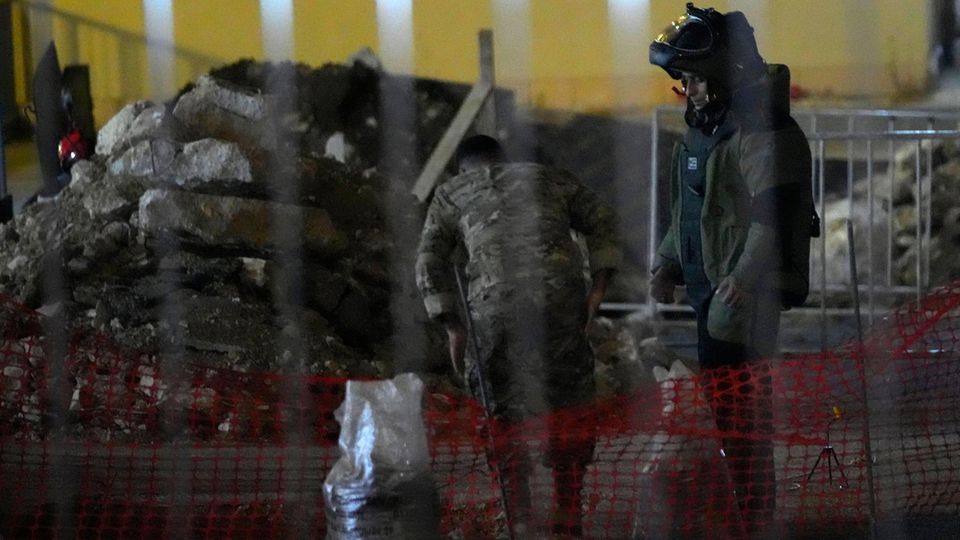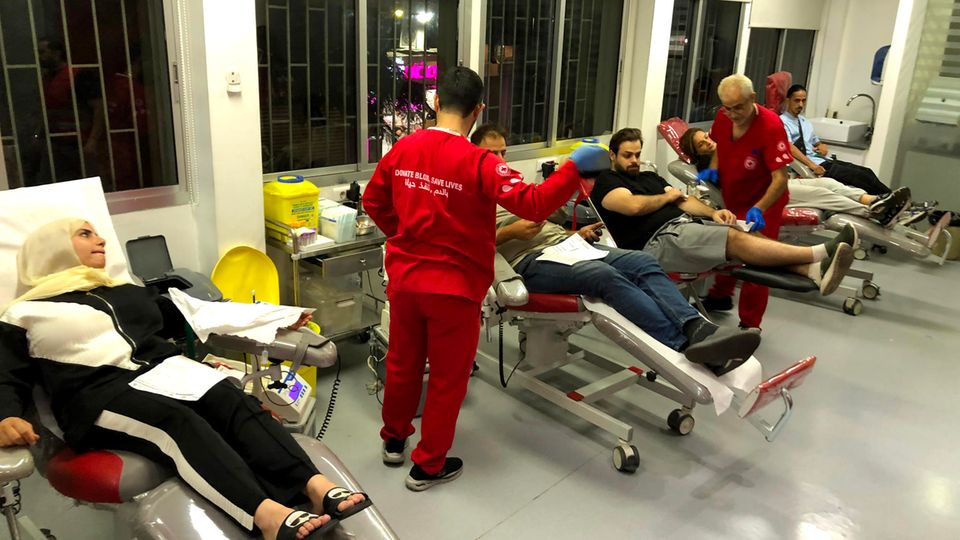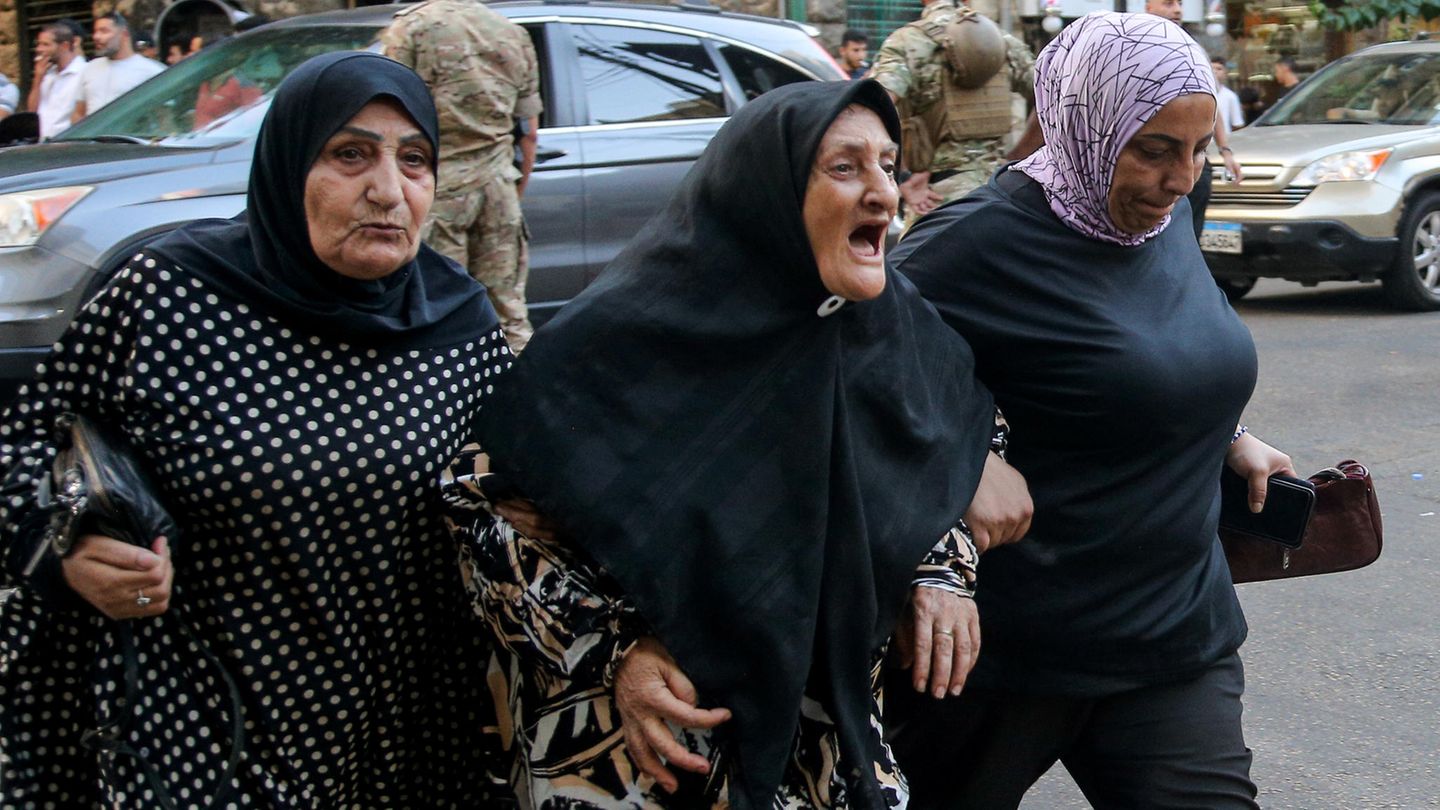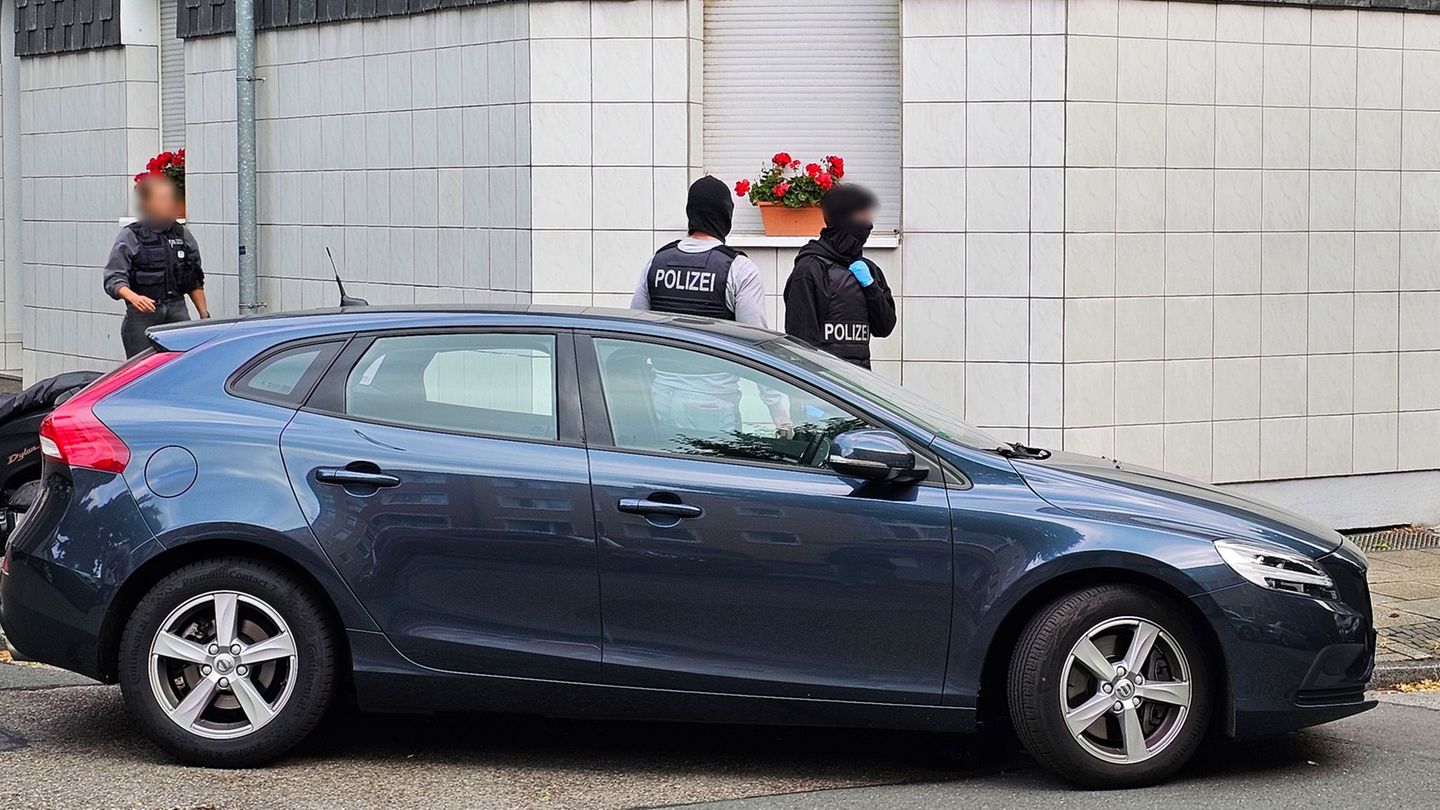The exploding pagers were intended to hit Hezbollah. But Hezbollah is everywhere. From the terrible price of Israel’s new military campaigns and from a country in a state of shock.
Lots of gloating, little compassion. This is a brief summary of how people in Lebanon feel about the international reactions to the unbelievable horror they experienced on Tuesday and Wednesday of this week. Using words like “sophisticated,” “astonishing,” and “impressive,” so-called “democratic media” have “celebrated” the thousands of explosions that have led to dozens of deaths and thousands of injuries, especially in southern Lebanon and the capital Beirut, complains on Facebook the Lebanese journalist Habib Battah, founder of the website Beirutreport.com and lecturer at the American University of Beirut (AUB).
Instead, the technology is admired
“You can only report like that if you deny the people you are reporting on any humanity.” Would such an attack on Israel or the USA be commented on in a similar way? “No,” the journalist is sure, “the victims would be mourned – but since it is about Lebanon, the technology that made this attack possible is admired.”
© private
To person
The journalist and author Susanne Nasr reported for many years from crisis areas from Afghanistan to Iraq. She lived in Lebanon for eight years, where she trained hundreds of journalists from 17 Arab states in digital security. As director for the “Middle East and North Africa” region of the aid organization “Internews”, she now works from Berlin.
Not all details are yet known as to how exactly the Israeli secret service managed to infiltrate the supply chain for thousands of pagers and radios ordered and distributed by the Lebanese Hezbollah, and to manufacture and deliver devices that could be detonated simultaneously at the push of a button. But one thing is already clear: the explosions have not only caused enormous human suffering, but have plunged a people who have withstood one crisis after another with great resilience for years into a state of collective shock.
The Israeli Defense Minister speaks of the “next phase of the war” and the world marvels at “the masterpiece of the Israeli secret service” Mossad against its arch-enemy Hezbollah. But the people of Lebanon are experiencing an apocalyptic end-time film.
“People just fell over. A short bang and a person was lying on the floor in the fruit shop covered in blood,” a friend from Beirut describes a scene that played out thousands of times across the country: at supermarket checkouts, in pharmacies, at the butcher’s, on the street. The attack, which had been planned for a long time, may have been aimed primarily at members and fighters of the Lebanese Hezbollah militia – but through the way it was carried out and the timing, the attackers consciously accepted that it could affect anyone in Lebanon, anywhere.

Why did nine-year-old Fatima have to die?
An entire nation as collateral damage. How, for example, does a father explain to his ten-year-old son why the right hand of the man who had just been riding next to them on a motorcycle in heavy Beirut traffic suddenly flies through the air, separated from his body by the explosion of the pager that he had taken out of his pocket because it had beeped?
Why did nine-year-old Fatima Abdullah have to die in the southern Lebanese village of Saraain? Her crime? She had just come home from her first day of school in fourth grade when she heard her father’s pager beeping. She ran to the device to give it to him, picked it up – and it exploded in her hand.
Targeted attack on terrorists? Hardly. Rule No. 11 of international humanitarian law states: “Indiscriminate attacks are prohibited.” This includes all attacks “that use methods or means of combat that cannot be directed against a specific military objective.”

A remote-controlled ignition of thousands of pagers, wherever they happen to be or in the vicinity of whomever they happen to be, is indiscriminate. What if one of the owners of a pager happened to be on board an airplane? Filling up his car with gas at a gas station? Driving a truck through a busy neighborhood or on a highway? Terrorism is the spreading of fear and terror through violent actions. There is no better way to describe the remote-controlled ignition of thousands of manipulated communication devices.
The panic in Lebanon is omnipresent and affects everyone, whether they are allies or sworn enemies of Hezbollah. In fear of their lives, people have disconnected the batteries for their solar panels from the grid because there were rumors that solar panels had also been blown up remotely. But given the dilapidated and completely overwhelmed state power grid in Lebanon, solar power is the only way to have a reasonably reliable power supply.
Lebanon: The country where means of communication become a danger
Cell phones, which are actually the constant companions of almost all Lebanese, are also frightening. “Turn off your cell phone immediately,” a woman shouted in one of the confusing street scenes of the last few days – into her cell phone, to the person on the other end, clearly unaware of the irony of the scene.
After all, what do people do in a confusing emergency situation with many injured, a lot of fear and little reliable information? They try to reach their loved ones, want to make sure that their family, children and husband are safe – but what do they do when the means of communication itself becomes a deadly danger? The Egyptian satirist Bassem Youssef put it this way: “And suddenly my phone, our surveillance camera, our children’s tablets are time bombs that explode at the behest of a country. An entire country held hostage. The entire world held hostage.”
“I don’t dare go anywhere anymore”
There is no protection, no escape from indiscriminate warfare, as has been observed in the Gaza Strip for months. Civilians, no matter how many, whether children or women, are declared legitimate collateral damage. “Hezbollah is everywhere,” says Amal Hassan* from the southern Lebanese city of Tyr, which is just 30 kilometers from Israel’s northern border. “I don’t dare go anywhere anymore, not even to the gym, because anyone can be attacked anywhere at any time.”
The gym had been a last refuge over the past few months since she gave up jogging because of the drones constantly circling over Tyr. “It may seem banal – but sport was a way for me not to fall into depression.”
In Tyr and the entire southern Lebanon along the border with Israel, a state of emergency has been in place for almost a year. Many villages are empty because the residents have sought refuge with relatives in the northern parts of the country. For months, Lebanon lived a divided reality: everyday life of war with drone and rocket attacks in the south, a party summer despite the economic and political crisis in the rest of the country.
Now the country is united again: in fear of terror from our pockets.
* Name changed by the editors.
Source: Stern
I have been working in the news industry for over 6 years, first as a reporter and now as an editor. I have covered politics extensively, and my work has appeared in major newspapers and online news outlets around the world. In addition to my writing, I also contribute regularly to 24 Hours World.




